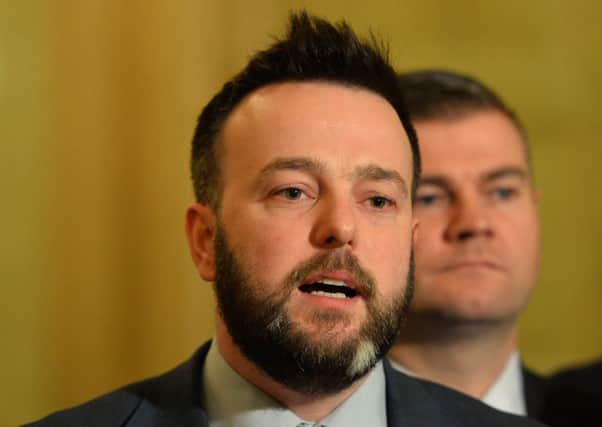Election Diary: SDLP get just 4% of Protestant transfers


The academic study for the Electoral Reform Society (ERS) involved 2,366 voters filling in mock ballot papers to show how they voted in last year’s Assembly election.
The results of the research show that voters vote for an average of 3.4 candidates – despite the fact that in that election there were six seats up for grabs in each constituency (five this year).
Advertisement
Hide AdAdvertisement
Hide AdThe research shows that 24% of all Protestant preferences and 33% of Catholic preferences (in terms of first preference votes and transfers) go to non-unionist and non-nationalist candidates respectively, with 8% of preferences expressed by Catholic being for a unionist party at some point on their voting paper, and 6% of preferences by Protestants being for a nationalist party.
Just 4% of Protestants voted anywhere on their ballot paper for the SDLP – less than the percentage of Protestants who vote anywhere for the TUV (5%). Just 3% of Catholics gave any preference to the UUP.
The research also points to the DUP (2%) getting more Catholic first preferences than the UUP (1%), perhaps because of socially conservative Catholics looking beyond the DUP’s harder unionism to its first stance on social issues such as abortion.
Katie Ghose from the ERS said: “What this research shows is that STV opens the door for a more open and less divided politics. And while voters aren’t necessarily using it to the fullest extent yet, there is a window of opportunity for it to grow, when it comes to breaking down community barriers.
Advertisement
Hide AdAdvertisement
Hide Ad“What is clear from this unprecedented research is that STV is allowing a broad range of views to be expressed where this simply wouldn’t happen under First Past the Post – adding both diversity and openness to Northern Irish politics.”
Prof John Garry of Queen’s University said: “This research is the first of its kind, in terms of its in-depth look at how voters actually rank candidates and parties across communities.”